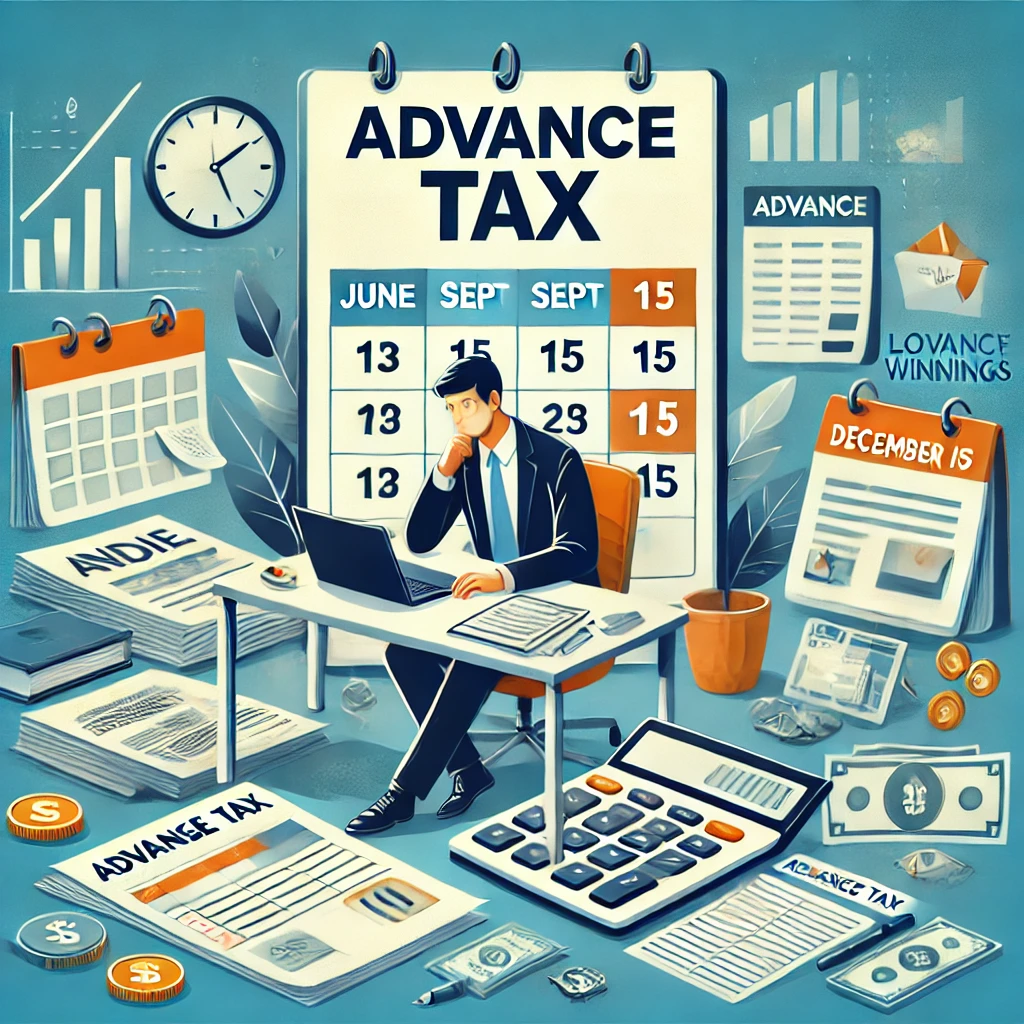What is Advance Tax?
Advance tax, as the name suggests is the tax that has to be paid in advance. The section 208 of income tax act provides the provisions for Advance Tax. The TDS which is deducted by employers for salaried individuals is also a type of advance tax whose liability is calculated annually by the employer based on the deductions and tax saving investments declared by the employees to their employer.
Post last updated: November 4, 2023

Advance Tax: A Comprehensive Guide
What is Advance Tax?
Advance tax, as the name suggests, is the tax paid in advance during the financial year rather than at year-end. According to Section 208 of the Income Tax Act, individuals are liable to pay advance tax if their total tax liability exceeds ₹10,000.
Note: The TDS (Tax Deducted at Source) deducted by employers for salaried individuals is also a form of advance tax. The liability is calculated annually by the employer based on the deductions and tax-saving investments declared by employees.
Who Needs to Pay Advance Tax?
Advance tax applies to individuals who earn income from sources other than salaries, such as:
- Capital Gains (e.g., property, shares)
- Interest from Fixed Deposits
- Winnings from Lotteries and Races
- Business or Professional Income
Exemption:
Salaried individuals with no other source of income are not required to pay advance tax.
Why is Advance Tax Implemented?
Advance tax ensures a continuous flow of income to the government throughout the year, avoiding large, unexpected tax collections at year-end.
Do Senior Citizens Need to Pay Advance Tax?
Senior citizens who do not have any business or professional income are exempt from paying advance tax, even if their tax liability exceeds ₹10,000.
Declaring Earnings Other Than Salaries
Income from business, profession, or capital gains can be declared under Section 44AD of the Income Tax Act. This section allows for presumptive taxation, simplifying paperwork for taxpayers.
Advance Tax Installment Schedule
| Installment Date | Tax Amount Payable |
|---|---|
| On or before June 15 | At least 15% of advance tax liability |
| On or before September 15 | At least 45% (cumulative) of advance tax liability |
| On or before December 15 | At least 75% (cumulative) of advance tax liability |
| On or before March 15 | 100% of advance tax liability |
Penalty for Late Payment
Failure to pay advance tax on time attracts a penalty of 1% per month (reduced to 0.75% in March 2020 under a tax ordinance).
Example of Advance Tax Calculation
Scenario:
Mr. Kaushik runs a provision store with a turnover of ₹2,82,00,000 in FY 2020-21. He declares income under Section 44AD at 8% of the turnover.
- Mr. Kaushik’s income qualifies for advance tax.
- He must pay advance tax based on the income generated from his business.
How to Pay Advance Tax Online
Steps to Pay Advance Tax Online:
- Visit the NSDL website.
- Go to the Services tab.
- Click on e-Payment: Pay Taxes Online.
- Select Challan No. 280 and proceed.
- Fill in the required details carefully.
- Complete the payment via Net Banking and note the challan number for confirmation.
Note: Inform the Income Tax Department after making the payment.
Conclusion
Advance tax plays a crucial role in maintaining the fiscal balance of the nation by ensuring timely revenue collection. Understanding your tax obligations and adhering to the installment schedule can help you avoid penalties and manage your finances more effectively.
For individuals with business or non-salaried income, compliance with advance tax rules promotes financial discipline. Senior citizens and salaried employees with no additional income benefit from simpler tax responsibilities.
By staying informed, calculating accurately, and paying on time, you can reduce financial stress and contribute responsibly. Consult a financial advisor if you need personalized assistance in navigating tax obligations.
Have questions or need support? Feel free to reach out to us!
Email: admin@fincalci.com
Author:





